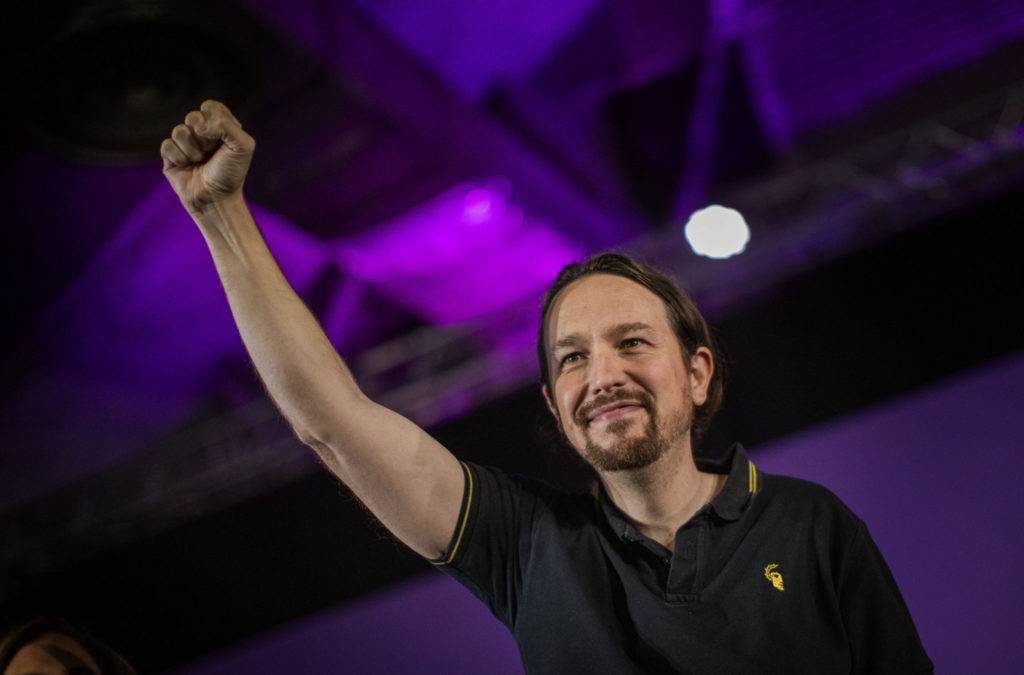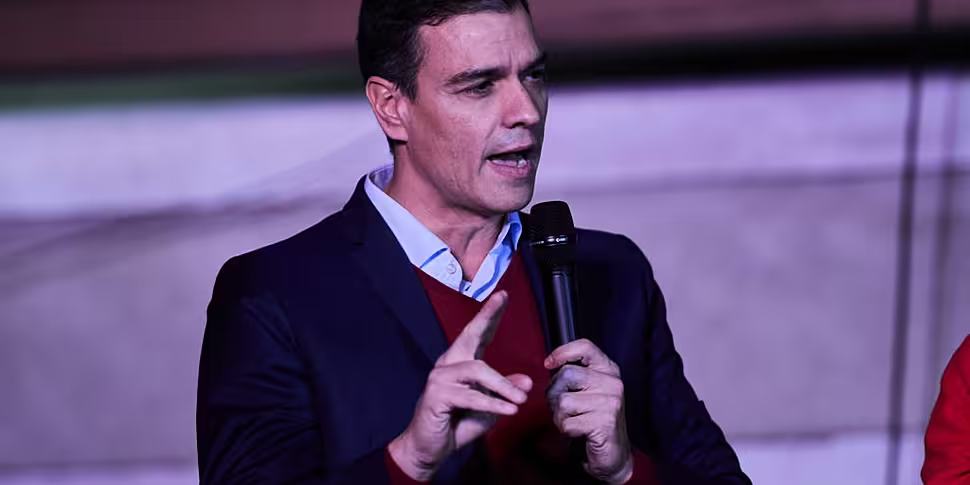Spain's socialist party looks set to be the overall winner of the country's general election.
Pedro Sánchez's PSOE party took 120 seats in the Spanish parliament of deputies.
However, this is three seats less than the party took in the last election in April.
This was Spain's fourth general election in as many years.
Spaniards went to the polls to elect 350 members of the parliament and 208 senators on Sunday.
The opposition Partido Popular (PP) is at 88 seats, with the right-wing Vox party at 52.
Vox's 52 seats compares with the 24 it took in the last election.
It is now the third-biggest party in Spain's parliament.
 Image: Corporación de Radio y Televisión Española (RTVE)
Image: Corporación de Radio y Televisión Española (RTVE)Spanish State broadcaster TVE suggests that the Socialists are entering a "more complicated scenario" than six months ago to form a government.
"The PSOE has won the elections for the third time this year (...) but our plan is not to continue winning elections, we must make policy for the benefit of the majority," Mr Sánchez is quoted by TVE as saying.
He also appealed to the other parties "to act with generosity and responsibility to unlock the political situation in Spain."
Mr Sánchez now needs to seek support to form a government.
It is thought two parties could hold the key so unlock the deadlock: the PP with its 88 seats or United We Can (Unidas Podemos) with 35 seats.
 Unidos Podemos (United We Can) party leader Pablo Iglesias rises his arm during an electoral meeting in Barcelona, Spain | Image: Emilio Morenatti/AP/Press Association Images
Unidos Podemos (United We Can) party leader Pablo Iglesias rises his arm during an electoral meeting in Barcelona, Spain | Image: Emilio Morenatti/AP/Press Association ImagesMr Sánchez needs a 176 majority to form a government outright in the Congreso de los Diputados (Congress of Deputies).
The outcome means there could be no end to the stalemate, which could see the country go weeks or even months without a new government.
The country marked a milestone 100 days without a government back in August, with hopes that this election would solve the crisis.
It came after negotiations broke down between Mr Sánchez's PSOE and the Unidas Podemos party.
Spain's El País newspaper reported at the time that Mr Sánchez offered Unidas Podemos a deputy prime minister spot, as well as the health, housing and equality portfolios.
However, the paper said Unidas Podemos leader Pablo Iglesias wanted a deputy prime minister role for social rights and equality - as well as the health, labour and science and universities ministries.
Main image: Spanish Prime Minister Pedro Sanchez thanks supporters outside PSOE headquarters in Madrid, Spain | Image: SOPA Images/SIPA USA/PA Images









